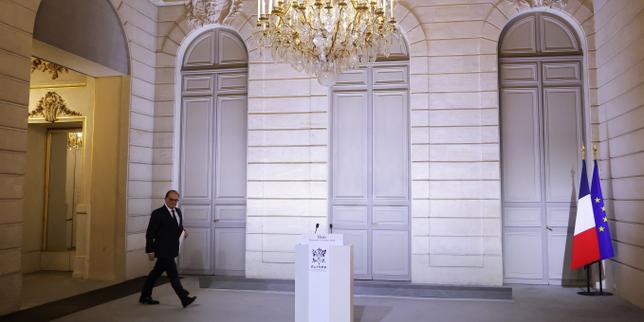Lecornu Government Faces Fragile Coalition and Political Challenges Amid New Appointments
Prime Minister Sébastien Lecornu’s new government faces a fragile coalition and sharp political critiques amid key ministerial appointments.
- • Bruno Le Maire appointed Minister of Armies and Veterans, Roland Lescure returns to Economy and Finance.
- • Jordan Bardella and Marine Le Pen demand clear break from Macronism or threaten censure and budget cooperation refusal.
- • Sébastien Lecornu described as weakest PM of Fifth Republic, struggling to maintain a fragile coalition.
- • The coalition includes LR, MoDem, UDI, and Horizons, with skepticism about Lecornu's government roadmap.
Key details
The newly formed government under Prime Minister Sébastien Lecornu was officially announced on October 5, 2025, ushering in several notable appointments and sparking immediate political reactions. Bruno Le Maire, a familiar name in French politics, was named Minister of Armies and Veterans, pledging to serve the French people with dedication. Meanwhile, Roland Lescure returned to Bercy as Minister of Economy, Finance, and Industrial and Energy Sovereignty, filling the role since September 21, 2024, and signaling stability by working alongside Amélie de Montchalin who continues her tenure as Minister of Public Accounts.
Despite these appointments, the government is under scrutiny. National Rally leader Jordan Bardella has publicly warned the Lecornu government to break from the policies of former President Emmanuel Macron or face a censure motion, criticizing the government as a continuation of Macronism that fails to meet public expectations. Marine Le Pen, also from the RN, emphasized the necessity for a clearer policy speech to consider cooperation on budget discussions. The Socialist Party's Olivier Faure shares concerns, threatening censure over budget proposals that lack significant differentiation from previous governments.
Sébastien Lecornu faces a particularly precarious political environment, described by Yves Thréard in Le Figaro as the weakest prime minister in the Fifth Republic. Lecornu’s primary challenge lies in maintaining cohesion within a fragile coalition that includes parties such as Les Républicains (LR), MoDem, UDI, and Horizons. While the coalition has grudgingly approved the new government following tense negotiations, skepticism remains high as Lecornu’s roadmap is viewed as tentatively crafted, more a letter of intent than a bold plan.
The government features several returning ministers like Elisabeth Borne (Education) and Gérald Darmanin (Justice), alongside newcomers Bruno Retailleau (Interior) and Rachida Dati (Culture). The first cabinet meeting is scheduled for Monday, aiming to set the government in motion amidst a tense and divided political landscape where center-right parties debate participation and the opposition remains vocal.
This fragile coalition and polarized political climate set the stage for a challenging tenure for Prime Minister Lecornu, with close scrutiny on his ability to unify diverse factions and deliver distinct policy directions amidst persistent calls for change.
This article was translated and synthesized from French sources, providing English-speaking readers with local perspectives.
Source articles (3)
Source comparison
Appointment date of Roland Lescure
Sources report different dates for Roland Lescure's appointment: September 21, 2024 vs October 5, 2025
liberation.fr
"Lescure succeeded Eric Lombard on September 21, 2024."
lefigaro.fr
"Lecornu's government was approved on October 5, 2025."
lemonde.fr
"The new cabinet meeting is set for October 5, 2025."
Why this matters: The discrepancy in the appointment date of Roland Lescure is significant because it affects the timeline of events regarding the new government formation and the context of his return to the cabinet. If Lescure was appointed in 2024, it suggests a different political landscape and timeline than if he was appointed in 2025, which is implied by the context of the other sources.
Latest news
PSG’s Achraf Hakimi Sent to Trial Over 2023 Rape Allegations
Study Reveals Severe Financial and Housing Hardships Among French Students
Political Shifts and Calls for Reason Mark the Lead-up to 2026 French Municipal Elections
Seminar Evaluates Economic and Legal Impact of Ruptures Conventionnelles on French Employment
Exceptional Flooding in Early 2026 Paralyzes Key Sectors of the French Economy
Shein Expands Retail Presence in Five French Provincial Cities Ahead of 2026 Municipal Elections
The top news stories in France
Delivered straight to your inbox each morning.



